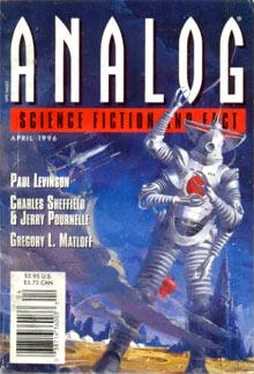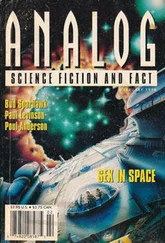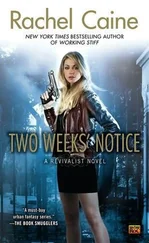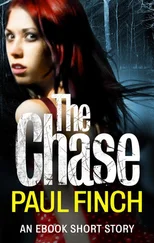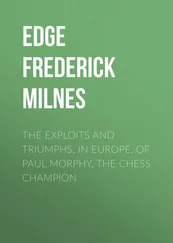Paul Levinson - The Copyright Notice Case
Здесь есть возможность читать онлайн «Paul Levinson - The Copyright Notice Case» весь текст электронной книги совершенно бесплатно (целиком полную версию без сокращений). В некоторых случаях можно слушать аудио, скачать через торрент в формате fb2 и присутствует краткое содержание. Жанр: Фантастика и фэнтези, на английском языке. Описание произведения, (предисловие) а так же отзывы посетителей доступны на портале библиотеки ЛибКат.
- Название:The Copyright Notice Case
- Автор:
- Жанр:
- Год:неизвестен
- ISBN:нет данных
- Рейтинг книги:4 / 5. Голосов: 1
-
Избранное:Добавить в избранное
- Отзывы:
-
Ваша оценка:
- 80
- 1
- 2
- 3
- 4
- 5
The Copyright Notice Case: краткое содержание, описание и аннотация
Предлагаем к чтению аннотацию, описание, краткое содержание или предисловие (зависит от того, что написал сам автор книги «The Copyright Notice Case»). Если вы не нашли необходимую информацию о книге — напишите в комментариях, мы постараемся отыскать её.
The Copyright Notice Case — читать онлайн бесплатно полную книгу (весь текст) целиком
Ниже представлен текст книги, разбитый по страницам. Система сохранения места последней прочитанной страницы, позволяет с удобством читать онлайн бесплатно книгу «The Copyright Notice Case», без необходимости каждый раз заново искать на чём Вы остановились. Поставьте закладку, и сможете в любой момент перейти на страницу, на которой закончили чтение.
Интервал:
Закладка:
She got up as if to leave.
“Not a smart move,” I took her hand. “Believe me, things can get much worse for you, in a hurry.” I sighed. I didn’t like badgering her, frightening her, but I had to get through to her. “OK, let’s try a different tack. Why’d you lie to me about not seeing anything on Glen’s computer screen?”
“You saw them?” Her eyes were wide.
“Just a fading sliver. Why didn’t you tell me?”
She sat down heavily, shaken. “It’s personal,” she said.
“Obviously—this whole thing is personal. But—”
“No, I mean the words were personal,” she said. “I should have told you. I’m sorry. But it was too painful. To think that I—I just couldn’t deal with it anymore on Tuesday. I just wanted to leave. I should have told you.”
What was she talking about? A Dear John letter on the screen? That’s what she thinks killed Glen Chaleff?
“The chromosomal material that Manny and Glen were working on came from me, from my body. My words killed them. My body’s the goddamned murder weapon.”
The sushi and tempura arrived. I looked at Jenna a long time. “So you’re saying you’re a—what?—a carrier of some type of genetic code that when transformed into words kills anyone who happens to read it?”
She nodded. “So far I’m the only one—as far as I know. The strange DNA material has been found on 8 percent of the X chromosomes we’ve examined. I told you that. But so far mine’s the only one that’s been translated all the way into English words.” “How’d you get involved in this to begin with?”
“Manny—Professor Klein—first came across the special DNA in a graduate student at MIT. Standard procedure—lots of students give DNA samples for this kind of research. I’d already given some of mine out at CalTech. Manny put out a request on the Internet—hundreds of scientists around the world were on his list, each already had DNA samples from hundreds of students and locals. Mine came up positive—the special DNA is easy to spot once you know what you’re looking for. I wanted an excuse to come back East. I got in touch with Manny and asked if I could join his team. He said sure. He was that kind of man. If I’d known that my DNA would kill him I’d have taken every bit of it back and grabbed the next plane to Antarctica. But even after he died I wasn’t sure. I mean, people get strokes. But now it’s happened again. This—this insanity in my DNA has killed two fine people!” She slammed her fist on the table. The tea in the cups shimmered, along with the tears brimming over her eyes.
I put what I hoped would be a consoling hand on hers. “Have you spelled this out in detail to Hertzberg? Why hasn’t he stopped the project?”
“You’ve talked to him, right? You know what he’s like,” Jenna said. “He’s an Occam’s Razor man—he goes for the simplest explanation. He’s comfortable with thinking Manny died of a stroke. He’d probably rather believe that I killed Glen with a chemical that left no trace than Glen was somehow killed by the words on the screen. He’ll always pick the mundane rather than the exotic. He’s a classic example of Kuhn’s workaday scientist—don’t rock the current paradigm, milk it for all it’s worth.”
Yeah, that jibed with the impression I already had of Hertzberg. Would take a few more bodies in his face before he’d notice—and by then who knows what kind of genetic demons would be let out of the bag.
“Look, we re really talking in the dark here,” I said. “Any chance you made a copy of the, uh, offending words, so I could see what they looked like?”
“No,” she said. “They’re too dangerous—they already killed two people, for god’s sake. I don’t want to take the chance—”
“All right,” I said. “I understand. But can’t you at least summarize the gist of what they say, so I can get some idea of what it is you’re talking about?”
She considered, then nodded. “First you scan the exact chemical composition of the chromosomal material. We use a new kind of polyacrylamide to do the electrophoresis, the imaging, if you need to know. Gives an extremely clear image, especially good for small nucleic molecules. And the results, as you know, fall into a clear binary series. Then you transform that series to an ASCII table—and in Manny’s case, in Glen’s too, they got words….”
“Right. First the Indo-European proto-language, Hertzberg told me, then the tenuous English translation.”
Jenna nodded.
“And the translation said?” I asked.
“It comes out to about three paragraphs—”
“Paragraphs?”
“Yeah,” she said. “Paragraphs. There was a small amount of null material between sentences, and larger amounts after three groups of sentences. So we called them paragraphs.”
“OK,” I said. “Sorry for interrupting. Please go on.”
“Well, the sentences talk about how intelligent species can leave their marks in history. How some, like the human species, have left some of their marks in stone, and these have survived. And how these could be easily recognized by other intelligent people—or species.
“We’re not really clear whether the word in that paragraph is species or people.
“Then the text continues with what looks like a question:
“But what of species who lack the capacity to work in stone, to leave their records in unchanging media? How might they tell the future about their existence? They might try to leave a marker, a message, in a different kind of stone, a living stone, a medium—a medium over which they had power.
“And the notation of life—as the text seems to put it—was their medium. They must’ve had the capacity to penetrate our DNA, maybe rearrange it, and leave this message.
“And the message says it will be passed on from generation to generation, without knowledge of the bearers, and it will therefore last longer than any message carved in non-living stone.”
I whistled.
“Wild, I know,” Jenna said. “I mean, there are lots of individual words in there that we’re not completely sure what the meaning is, but that’s our best estimate as to the general sense of it.”
“So what are we talking about here? Intelligent pieces of viruses that can penetrate our chromosomes, our DNA, and leave messages for us? Intelligent aliens who were able to perform genetic engineering on our ancestors, and leave their calling card in case we had further business?”
Jenna made a helpless gesture. “That, and every possibility in between," she said. “I don’t know. I didn’t say they were viruses. I just said that was the thrust of the message they left—in me. I saw it. Twice.” Her lips were quivering again.
“All right,” I said, and tried to give her a reassuring smile. Though I didn’t particularly feel that way. “And was that all there was? That was the entire text on the screen?”
“That’s the substance of the message,” Jenna said. “There was something more at the end—a sort of notice I guess.”
“Tell it to me,” I prompted.
She closed her eyes, as if trying to get these words exactly. Apparently she felt they in themselves posed no threat. “Anyone who reads these words, who possesses our codes, is free to use them. As allowed under our Copyright Notice.”
“Copyright Notice?” So there it was. I was glad Jenna was at last being honest with me.
She shrugged. “That’s what the ASCII translation table printed out in English. The newer approaches try to go for figurative rather than literal translations where possible—they convey the culture with more flair, though increase the likelihood of error. The proto-Indo-European was closer to Proclamation of Possession, or maybe Announcement of Ownership Privileges—I’ve become an expert on that damn language, already, believe me. Truthfully, we didn’t pay all that much attention to that last part. The stuff in the body of the message seemed much more important.”
Читать дальшеИнтервал:
Закладка:
Похожие книги на «The Copyright Notice Case»
Представляем Вашему вниманию похожие книги на «The Copyright Notice Case» списком для выбора. Мы отобрали схожую по названию и смыслу литературу в надежде предоставить читателям больше вариантов отыскать новые, интересные, ещё непрочитанные произведения.
Обсуждение, отзывы о книге «The Copyright Notice Case» и просто собственные мнения читателей. Оставьте ваши комментарии, напишите, что Вы думаете о произведении, его смысле или главных героях. Укажите что конкретно понравилось, а что нет, и почему Вы так считаете.
